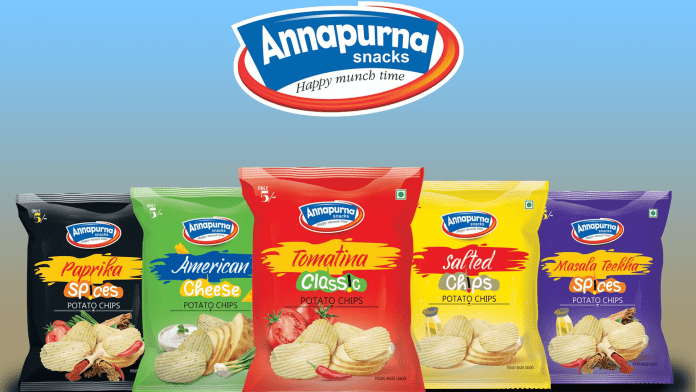On Sunday, Annapurna Swadisht Ltd announced its goal to achieve a revenue doubling in the fiscal year 2023-24, surpassing INR 300 crore. The company also aims to sustain a compound annual growth rate (CAGR) of no less than 50 percent over the next 4-5 years.
A senior official from the food-focused FMCG company in East and Northeast India stated that the company’s ambitious growth will be propelled by increased market penetration and expansion into two major categories: biscuits and noodles.
In pursuit of this goal, the company has enlisted the expertise of GP Sah, the global CEO of the Nepal-based FMCG company that possesses the Wai Wai branded noodles, to guide the company through its upcoming phase of expansion.
Read More: Kolkata’s Annapurna Swadisht appoints new Joint MD for strategic development and innovation
With the aim of achieving a topline of INR 1,000 crore within the next 3-4 years, Annapurna’s managing director, Shreeram Bagla, has brought in new talent to the company, increasing it from INR 160 crore in FY’23.
“A revival in rural demand, driven by greater distribution strategies and the addition of new categories like biscuits and noodles, will help Annapurna achieve robust growth in the coming years.
“In FY’24 itself, we are targeting to cross a topline of INR 300 crore, up from INR 160 crore in FY’23,” stated GP Sah, the joint managing director, during an interview.
During the first half ending September 30, 2023 (H1’FY24), the company with a focus on snacks, listed on the NSE SME platform, announced a substantial increase in revenue, nearly reaching 100 percent to INR 131.13 crore, along with a noteworthy jump of 128 percent in Profit After Tax (PAT) to INR 6.56 crore.
Sah mentioned that while the biscuits market is valued at INR 50,000 crore, and the noodles segment has reached INR 12,000 crore, there is substantial untapped potential in both sectors due to their comparatively low per capita consumption when compared to neighboring countries.
Describing the reasoning behind the growth projection, Sah emphasized that the reduction in raw material prices is enabling the industry to recalibrate prices, providing enhanced advantages to consumers through diverse forms and formats. This includes the introduction of premium products in smaller SKUs specifically tailored for urban markets.
Moreover, with a favorable monsoon, barring a few regions, there is anticipated relief for rural demand, alleviating the pressure on the FMCG sector.
“We are doing very well in the snacks segment, which now accounts for about 75 per cent of our current revenue, and we will continue to innovate in this segment, which is worth INR 1 lakh crore, including bhujia and namkeen among others,” he said.
The company predominantly serves Tier III and Tier IV markets in Bihar, Jharkhand, West Bengal, Assam, Odisha, and Uttar Pradesh. Its product portfolio comprises nearly 72 SKUs (stock-keeping units) spread across ten main categories, encompassing fryums, namkeens, snacks, candies, and cakes.
With a network of almost 550 distributors and more than 115 super distributors, the products are accessible through an extensive presence in over 6 lakh retail touchpoints.
Discussing the introduction of new categories, Sah mentioned that the company intends to have a presence in both the mass and premium segments for noodles, while focusing solely on the mass segment for biscuits.
Nevertheless, he underscored the company’s commitment to solidify its position in the current markets of the eastern and northeastern states.
Currently, the company plans to adopt an asset-light approach by outsourcing the production of the new categories (biscuits and noodles).
ASL possesses five proprietary manufacturing units situated in various locations across West Bengal, including Asansol, Siliguri, Gurap, and Dhulagarh. Additionally, the company has entered into six contractual/leasing arrangements at Kakinara (West Bengal), Hazaribagh (Jharkhand), Ranigunj (West Bengal), Ganjam (Odisha), Siliguri (West Bengal), and Mathura (Uttar Pradesh).
Having been listed in September 2022, the company raised approximately INR 65.43 crore through a preferential issue of equity shares and warrants to fuel its expansion, according to the official.





